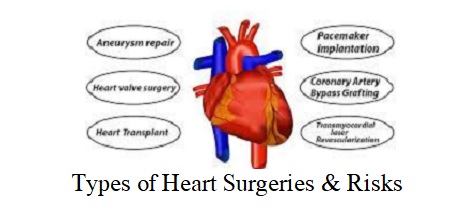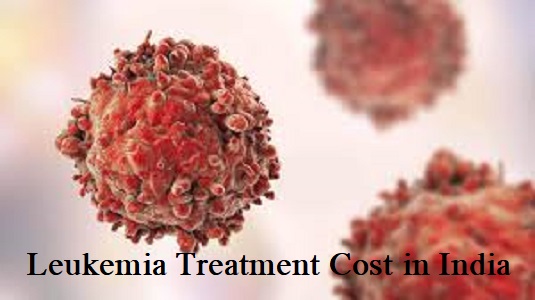Multiple Myeloma: Treatment, Cost, Symptoms, Causes, and Diagnosis
Multiple myeloma, also known as Kahler’s disease, is a rare blood cancer that affects plasma cells that originate in the bone marrow. Plasma cells are a type of white blood cell that produces antibodies that fight infections. In Multiple myeloma, the healthy plasma cells are changed into cancerous plasma cells, leading to low blood counts, anemia, thrombocytopenia, and leukopenia. These cancerous plasma cells multiply rapidly and generate huge quantities of aberrant immunoglobins. These abnormal immunoglobins are called monoclonal M-protein or paraproteins. The huge quantities of M-protein negatively affect the production of normal blood cells. More M- protein in the body can result into organ damage or bone damage. Here you will know about multiple myeloma treatment cost, causes, symptoms, types etc.
Multiple myeloma is more common in African populations. While the global prevalence of multiple myeloma is roughly 2 per 100,000 persons. Factors like ancestry, poor access to healthcare resources, and differences in environmental exposures may all have an impact on the prevalence of multiple myeloma in Africa.
Multiple myeloma treatment in India is gaining acceptance because of its excellent medical facilities and comprehensive cancer care abilities. Top-tier medical facilities, cutting-edge treatments, and trained multiple myeloma specialists in India make it an affordable solution for patients dealing with multiple myeloma.
Symptoms of Multiple Myeloma
MM can be asymptomatic in its early stages, making it difficult to diagnose. As the condition advances, common symptoms may include
- Bone pain (back, ribs, hips)
- Fatigue and shortness of breath
- Excessive thirst
- Numbness & weakness
- Leg swelling
- Infections
- Pathological fractures
- Appetite changes and weight loss
- Nausea, vomiting
- Bruising, bleeding easily
- Mental fogginess
- Upset stomach or constipation
- Unexplained fever
- Trouble breathing
- Frequent urination
Other Plasma Cell Disorders
- Top of Form
In addition to multiple myeloma, there are various other plasma cell disorders that affect people. Some of the common plasma cell disorders are:
- Monoclonal Gammopathy of Undetermined Significance (MGUS): MGUS is a common disorder in which the blood contains an unusual protein known as monoclonal protein. People with MGUS normally do not feel sick. However, there is a slight chance that it will progress to multiple myeloma, a more fatal form of cancer. As a result, doctors monitor it with regular check-ups.
- Smoldering Multiple Myeloma (SMM): SMM is a subtype of MGUS that is less severe than multiple myeloma. When compared to MGUS, SMM has more abnormal plasma cells and more of that unusual protein in the blood. Even if persons with SMM feel fine, they are more likely to develop active multiple myeloma later in life. As a result, doctors keep a close watch on them in order to detect changes early.
- Solitary Plasmacytoma: Solitary plasmacytoma is an uncommon disorder that involves a single plasma cell tumour in a bone. It is distinct from multiple myeloma, which spreads across the body. Solitary plasmacytoma can be treated with radiation therapy and, in certain cases, surgery.
- Light Chain Amyloidosis: Light chain amyloidosis occurs when abnormal proteins known as light chains accumulate in your body’s organs such as the heart, kidneys, nerves, and stomach. This can cause your organs to malfunction and generate difficulties. The treatment depends on the extent to which your organs are affected and may include drugs as well as other therapies.
- Waldenström Macroglobulinemia: Waldenström macroglobulinemia is a type of non-Hodgkin lymphoma that is extremely rare. It occurs when your body produces an excessive amount of an antibody known as IgM. This can result in symptoms such as fatigue, bleeding, or nerve difficulties. Doctors might recommend chemotherapy, targeted treatments, or immune-boosting medications to treat it.
Causes of Multiple Myeloma
Multiple myeloma is a complex disease with an unknown origin. However, a number of risk factors have been observed that may enhance the possibility of acquiring this condition:
- Age: Multiple myeloma is more common in older adults, with people over the age of 65 contributing to the majority of cases.
- Gender: Men have a higher risk of getting multiple myeloma than women.
- Race: Black people have a higher risk of having multiple myeloma than white people.
- Family History: Having a close family member (parent, sibling) with multiple myeloma can enhance one’s risk, however such cases are uncommon.
- Obesity: Being overweight or obese increases the risk of having multiple myeloma.
- Environmental Factors: Researchers examined possible links between multiple myeloma and environmental factors such as radiation exposure or chemicals used in agriculture, manufacturing, and firefighting.
- Inflammatory Conditions: Inflammatory disorders, including heart disease, Type 2 diabetes, and rheumatoid arthritis, have been identified as risk factors for developing multiple myeloma.
Conditions linked to Multiple Myeloma
Multiple myeloma can cause several connected diseases and complications that impact organs in the body. Some of the conditions that are associated with multiple myeloma are:
- Anemia: Multiple myeloma can cause anemia, which occurs due to a lack of red blood cells. This results in fatigue and weakness.
- Bacterial Infections: A weakened immune system makes you more prone to diseases such as pneumonia.
- Thrombocytopenia: Multiple myeloma may cause problems with platelet formation, which is necessary for the clotting of blood. Low platelet levels lead to easy bruising and bleeding.
- Bone Pain/Fractures: The destruction of bone tissue produces pain and raises the risk of fracture.
- Kidney Problems/Failure: The presence of abnormal plasma cells can result in the production of M proteins that hinder the filtration function of the kidney leading to kidney failure.
- Amyloidosis: Multiple myeloma may allow abnormal proteins called amyloid proteins to accumulate in many organs and affecting their function.
- Hypercalcemia: Damaged or weaker bones in multiple myeloma can cause excess calcium to be released into the bloodstream, leading to hypercalcemia.
- Hyperviscosity Syndrome: M proteins, which are produced by abnormal plasma cells, can cause blood to thicken. The heart may be pressured as it pumps heavier blood throughout the body.
- Cryoglobulinemia: Multiple myeloma can lead to protein clumping in the blood in cold temperatures, resulting in cryoglobulinemia.
Diagnosis of Multiple Myeloma
- CBC (Complete Blood Count): Measures red and white blood cells and hemoglobin levels and may reveal abnormalities such as anemia or leukopenia.
- Peripheral blood smear for knowing shape, size and count of blood cells.
- Blood Tests: Detect M proteins and other markers, such as beta-2-microglobulin
Serum Protein Electrophoresis (SPEP): This test separates proteins from blood serum and can detect abnormal M proteins (monoclonal proteins) produced by cancerous plasma cells.
- Urine Tests: Similar to SPEP, this test looks for M proteins in the urine, specifically Bence Jones proteins, which are light chains produced by cancerous plasma cells.
- Bone Marrow Biopsy/Aspiration: A bone marrow biopsy is the study of a small sample of bone marrow tissue. It helps in confirming the presence of abnormal plasma cells.
- Imaging Tests: X-rays, CT scans, MRIs, and PET scans are performed to visualize bone damage.
X-rays: It can identify bone lesions or fractures, which are common in multiple myeloma.
CT (Computed Tomography) Scan: It provides detailed cross-sectional pictures to evaluate bone involvement and detect organ damage.
MRI (Magnetic Resonance Imaging): This test is useful to identify spinal cord compression and soft tissue involvement.
PET (Positron Emission Tomography) Scan: It helps in determining the presence of active areas of cancer cells, such as plasmacytomas.
- Blood Chemistry Test: It evaluates kidney function, protein levels, calcium, and LDH (lactate dehydrogenase).
- Quantitative Immunoglobulin Test: It measures the amounts of immunoglobulins (IgG, IgA, and IgM) in the blood, which can be affected by abnormal antibody overproduction.
- Electrophoresis: Immunofixation electrophoresis (IFE) test helps in identifying the type of M protein present in the blood.
Treatment Available for Multiple Myeloma in India
Treatment options for multiple myeloma are influenced by several factors, including the disease’s stage, the presence of symptoms, etc. Some of the multiple myeloma treatment in India are:
- Watchful Waiting (Active Surveillance): Treatment may not be needed right away in cases of asymptomatic multiple myeloma. To detect any progression, doctors may choose to thoroughly monitor the patient’s condition through regular examinations, blood tests, and imaging.
- Chemotherapy: Chemotherapy is the use of medications to specifically target and kill rapidly dividing cancer cells. Bendamustine, cyclophosphamide, doxorubicin, and other chemotherapeutic medicines are commonly used to treat multiple myeloma.
- Targeted Therapy: Targeted treatment drugs are intended to attack specific chemicals or proteins within myeloma cells. These drugs include proteasome inhibitors (e.g., bortezomib, carfilzomib, ixazomib) and immunomodulatory drugs (e.g., lenalidomide, pomalidomide, thalidomide).
- Immunotherapy: Immunotherapy medications such monoclonal antibodies (e.g., daratumumab, elotuzumab, isatuximab) and CAR-T cell therapy improve the immune system’s ability to recognize and eliminate myeloma cells.
- Stem Cell Transplantation: Autologous stem cell transplantation includes collecting healthy blood-forming stem cells from the patient or a donor, followed by high-dose chemotherapy to kill cancerous cells. The collected stem cells are reintroduced into the body to regenerate healthy bone marrow.
- Radiation Therapy: Radiation therapy targets and kills myeloma cells using focused energy beams (X-rays, protons, etc.), especially when they form localized masses (plasmacytomas) that cause pain or bone damage.
- Bone Symptom Management: It uses drugs that reduce bone breakdown and help strengthen bones affected by multiple myeloma.
- Plasma Exchange: Plasma exchange may be used to temporarily replace thickened blood plasma with normal plasma from a donor in cases of hyperviscosity caused by high levels of abnormal proteins.
Complications of Multiple Myeloma
- Bone Problems: Bone discomfort and fracture risk are increased by the bone thinning
- Blood Problems: It can cause anemia, which will make you tired and have heart problems.
- Infections: Multiple myeloma can weaken your immune system, making you more vulnerable to infections.
- Kidney Damage: Your kidneys could get clogged by myeloma, which would result in poor filtration and renal failure.
- Anemia: Red blood cell production can be decreased when abnormal plasma cells crowd out healthy bone marrow cells.
- Leukopenia: Immune system is weakened by a deficiency of white blood cells.
- Bone Erosion or Lesions: Osteoporosis or lytic lesions can be caused due to myeloma cells which results in bone damage.
- High Blood Calcium Levels: This disorder affects different bodily functions and is linked to bone damage.
- Hyperviscosity: Blood that has too many M proteins might become thick and become difficult to flow through small vessels.
Best Hospital for Multiple Myeloma in India
The best hospitals for multiple myeloma treatment in India are known for their advanced medical infrastructure, skilled medical teams, and a wide range of specialized treatment options, making them the preferred choices for patients seeking top-quality care for multiple myeloma.
- BLK Super Speciality Hospital
- Indraprastha Apollo Hospital
- Max Super Specialist Hospital Saket
- Artemis Hospital Gurgaon
- Medanta – The Medicity Hospital
- Fortis Memorial Research Institute
- Sanar International Hospital Gurugram, Delhi NCR
- Marengo Asia Hospital, Gurugram
- Aakash Healthcare Super Speciality Hospital
Top Doctors for Multiple Myeloma in India
The best doctors for multiple myeloma in India are highly qualified and experienced experts who are well-known for their expertise in diagnosing and managing complicated blood cancer. They work in top hospitals and provide care to patients seeking successful multiple myeloma treatment in India.
- Gaurav Kharya – Indraprastha Apollo Hospitals, Gurgaon, India
- Rahul Naithani – Max Super Specialty Hospital Saket, New Delhi, India
- Pravas Chandra Mishra – Max Super Speciality Hospital, Patparganj, New Delhi, India
- Nivedita Dhingra – Max Hospital Vaishali, New Delhi, India
- Nandini C. Hazarika – Apollo Hospitals, Jubilee Hills, Hyderabad, India
- Aniruddha Dayama – Fortis Memorial Research Institute, Gurgaon, India
- Ramandeep Singh Arora – Max Super Specialty Hospital Saket, New Delhi, India
- Mahesh Rajashekaraiah – BGS Gleneagles Global Hospital Bangalore, Bangalore, India
- Sachin Jadhav – BGS Gleneagles Global Hospital Bangalore, Bangalore, India
- Shishir Seth – Indraprastha Apollo Hospitals, New Delhi, India
Multiple Myeloma Treatment Cost in India
Multiple Myeloma treatment in India provides an affordable yet effective treatment for people suffering from multiple myeloma cancer. The cost varies depending on many factors, including the stage of the disease and the type of treatment required.
Bone marrow transplants, a common treatment for Multiple Myeloma, can cost between $13,000 to $18,000. The total cost of treatment begins at $7,200, with extra costs for pre-operative tests, surgery, post-operative care, and drugs. The final costs may be influenced by factors such as the hospital room chosen, post-surgical problems, and accommodation for follow-ups. With reasonable prices and good medical facilities, India is an attractive option for Multiple Myeloma treatment.
Contact Form
Attach Medical Report
Top Doctors & Surgeons in India
Why Choose Us

Personalized Care
24x7 Supports
Top NABH and JCI accredited Hospitals
Free Cost Estimation & Medical Opinion from Specialist
Get Free Tele/Video Consultation
Visa and Traveling Assistance
Post-surgery with Assistance in Follow-ups














